How Is Interest Income Taxed and Reported
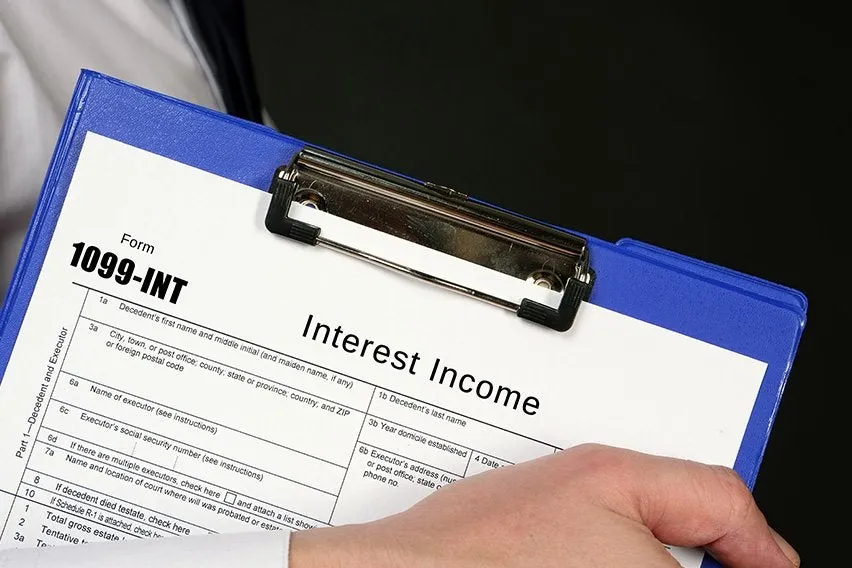
Interest income is income you can earn from investments, personal loans, and savings accounts. Almost all interest income is taxable 1 unless it’s specifically excluded under circumstances laid out by the Internal Revenue Service. This means that every dollar earned in interest or an annual percentage yield (APY) is taxed as ordinary income and must be reported as income on your tax return.
In this article, we’ll explore how much interest income is taxable, the types of taxable income, how to report it, and what happens if you don’t.
Key Takeaways
- Interest income includes all money you earn for lending your money, including putting it into savings accounts or purchasing certificates of deposit (CDs).
- You must pay income tax on any interest you earn, during the year you earn it, unless it’s on municipal bonds, non-Roth 401(k)s, health savings accounts, or traditional individual retirement accounts (IRAs).
- If you don’t claim your interest income on your tax return, you may be at risk of having to pay a penalty and interest, and in some cases, you may face legal trouble.
Table of Contents
- What is Interest Income?
- Tax Rate on Interest Income
- What are the Types of Interest Income That Are Taxable?
- What Interest Income is Not Taxable?
- How to Report Your Interest Income on Your Taxes?
- Penalties for Failing to Report Interest Income
- Simplify Financial Management with FreshBooks
- Frequently Asked Questions
What Is Interest Income?
Interest income is any additional income earned on interest from investments, loans, or savings accounts. It may include interest earned in high-yield savings accounts, checking accounts, mutual funds, U.S. savings bonds, corporate bonds, and any interest-bearing accounts.
The interest earned in these accounts is considered taxable interest, meaning paying taxes on the year’s earnings is expected by the IRS, the same as it would be with any other income.

Tax Rate On Interest Income
Interest income is taxed at the same rate as your ordinary income, subject to your marginal tax rate, and which tax bracket you fall into.
The federal income tax rates and brackets for 2024 are as follows 3:
| Tax Rate | Single Taxpayer | Married, Filing Jointly | Married, Filing Separately | Head of Household |
| 10% | $0 to $11,600 | $0 to $23,200 | $0 to $11,600 | $0 to $16,550 |
| 12% | $11,601 to $47150 | $23,201 to $94,300 | $11,601 to $47,150 | $63,101 to $100,500 |
| 22% | $47,151 to $100,525 | $94,301 to $201,050 | $47,151 to $100,525 | $63,101 to $100,500 |
| 24% | $100,526 to $191,950 | $201,051 to $383,900 | $100,526 to $191,950 | $100,501 to $191,950 |
| 32% | $191,951 to $243,725 | $383,901 to $487,450 | $191,951 to $243,725 | $191,951 to $243,700 |
| 35% | $243,726 to $609,350 | $487,451 to $731,200 | $243,726 to $365,600 | $243,701 to $609,350 |
| 37% | $609,351 or more | $731,201 or more | $365,601 or more | $609,350 or more |
Taxes are assessed progressively, meaning if you are in the 24% tax bracket, you’re not paying 24% on all your yearly income. The first $1,600 you earned will be taxed at 10%, then the amount up to $4,266 will be taxed at 12%, then up to $11,742 will be taxed at 22%, and the rest will be taxed at the 24% rate.
If you’re a high-income earner, you may also have to pay the net investment income tax rate of 3.8%. The thresholds for net investment income tax are:
- Head of household or single taxpayer: $200,000
- Qualifying widow(er) with a child, and married couples filing jointly: $250,000
- Married couples filing separately: $125,000
What Are the Types of Interest Income That Are Taxable?
Most of the interest you receive is taxable income in the year it becomes available to you. This includes:
- U.S. savings bonds, except for interest redeemed from Series EE and Series I bonds that were issued after 1989 if they were used to pay for qualified educational expenses, and if you meet the Educational Savings Bond Program requirements
- Treasury bills, treasury bonds, and treasury notes
- Corporate bonds
- Certificates of deposit (CD)
- Mutual funds
- Exchange-traded funds (ETFs)
- Personal loans you make to others
Some more examples of taxable interest provided by the Internal Revenue Service 2 include:
- Interest on bank accounts, including your savings accounts, checking accounts, etc.
- Money market accounts
- Deposited insurance dividends, except for interest on insurance dividends left on deposit with the U.S. Department of Veterans Affairs, which is tax exempt.
What Interest Income Is Not Taxable?
Taxpayers may wish to invest some of their money into IRAs, health savings accounts, and 401(k)s.
Some interest-earning accounts that aren’t immediately taxable include:
- Municipal bonds are exempt from federal taxes, and may also be exempt from state taxes if they are issued by a state you file taxes in
- Non-Roth 401(k)s
- Health savings accounts
- Traditional Individual Retirement Accounts (IRA), although you will end up paying taxes on your withdrawals in the future
While these are not considered taxable, they come with restrictions on how the money in the accounts can be used, often with penalty fees and taxes imposed if you withdraw early.
How to Report Interest Income on Your Taxes?
If you earn interest from a bank or financial institution, they’ll send you a Form 1099-INT or a Form 0199-OID tax form, giving you all the information you’ll need to include on your tax return. This may also come as part of a composite broker statement. If the amount is over $1,500 for the tax year, then you must also report it on Schedule B of your 1040 federal tax return.
Even if you don’t receive a Form 1099-INT, you must report your interest income no matter the amount, whether it’s taxable or not, or face penalties. While most financial institutions will send the forms for you, some may not, so it’s crucial to track all your earned interest yourself, no matter how small the amount.
Penalties for Failing to Report Interest Income
Inaccurately reporting your income can cause troubles for you at the federal level, depending on the amount of income taxes you owe, as can missing important tax deadlines. Some consequences you could expect to face include:
- Unreported income penalties – you may have to pay penalties and be subject to back-up withholding until the amount due is paid in full.
Accrued interest charges – you’ll have to pay interest on any amount due. The interest rate is determined quarterly based on the federal short-term rate, plus 3%. 4
- Failure-to-file penalty – this is usually 5% of the tax owed for each month, up to a maximum of 25% if you fail to file. You may also have to pay the lesser of $485 or 100% of all tax owed if your return is over 60 days late.
- Criminal investigation – if you’re suspected of tax evasion, you may be subject to an IRS criminal investigation.
Simplify Financial Management with FreshBooks
Using FreshBooks accounting software can simplify the way you track and manage your interest income. FreshBooks automatically categorizes financial transactions, maintains organized records, and provides easy access to important documents during tax season. With its clean and simple interface, it makes staying updated and on track easier than ever.
You can try FreshBooks free today, and see how upgrading to this powerful financial management software can make a difference in your day-to-day operations. No credit card is required and you can cancel at any time.

FAQs On Tax On Interest Income
Do you still have questions about how interest is taxed or what happens if you exceed the interest income reporting threshold? You may find the answers you’re looking for below.
How to avoid tax on interest income?
To earn interest without an additional tax burden at the end of the year, you could leverage tax-advantaged accounts like Roth IRAs or health savings accounts. These allow some contributions, growth, and withdrawals without tax penalties. Make sure to read the fine print to ensure your actions remain legal, and you’re not surprised by a hefty tax bill from the IRS.
What if I have more than $1500 in taxable interest income?
If you have earned over $1,500 in interest income, then you must report it on Schedule B of your 1040 federal income tax return, as well as on Form 1099. The IRS will ensure you pay federal taxes (and sometimes state taxes) on that income the same as your regular earnings.
How much interest can I earn without paying taxes?
Legally, you must pay taxes on any interest you earn, even if it’s only a dollar, as it’s taxable income. The bank may not send you a 1099-INT form for an amount under $10, but you must still report your earnings.
Do I have to file taxes if I only have interest income?
Yes, you have to file your taxes and report all interest income. As far as the IRS is concerned, interest income is the same as any other type of earned income, and it is taxed accordingly. This includes guaranteed investment certificates, bank interest, and term deposits.
Do you pay taxes on interest earned on a CD?
Yes, CD interest is subject to the same income tax as your regular gross income. The more money you earn in interest, the more taxes you’ll pay at the end of the tax year.
Article Sources
- apps.irs.gov. “Tax Tutorial Module 3: Interest Income.” Accessed Aug 12, 2024.
- irs.gov. “Topic no. 403, Interest Received.” Accessed Aug 12, 2024.
- irs.gov. “Federal income tax rates and brackets.” Accessed Aug 12, 2024.
- irs.gov. “Topic no. 653, IRS notices and bills, penalties, and interest charges.” Accessed Aug 12, 2024.
Reviewed by
Michelle Payne has 15 years of experience as a Certified Public Accountant with a strong background in audit, tax, and consulting services. Michelle earned a Bachelor’s of Science and Accounting from Minnesota State University and has provided accounting support across a variety of industries, including retail, manufacturing, higher education, and professional services. She has more than five years of experience working with non-profit organizations in a finance capacity. Keep up with Michelle’s CPA career — and ultramarathoning endeavors — on LinkedIn.
RELATED ARTICLES


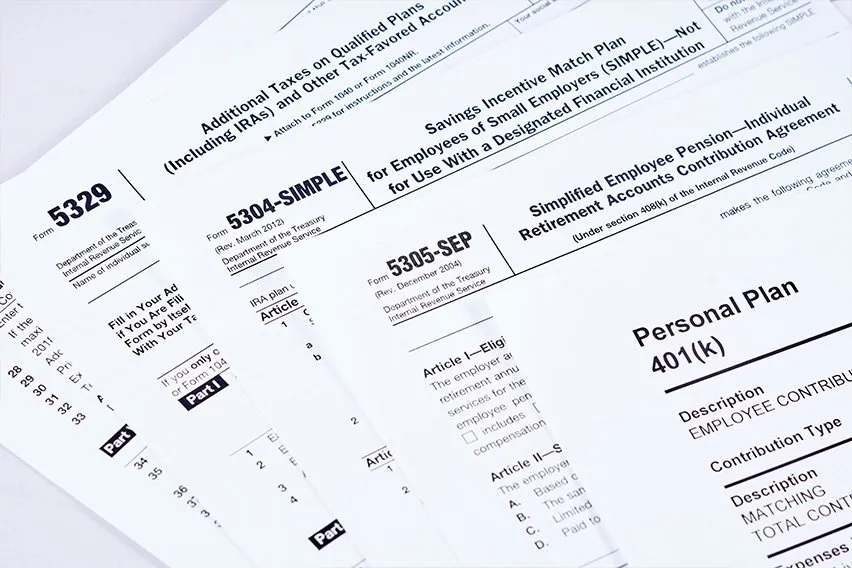 Do You Have to Report 401k on Tax Return? It Depends
Do You Have to Report 401k on Tax Return? It Depends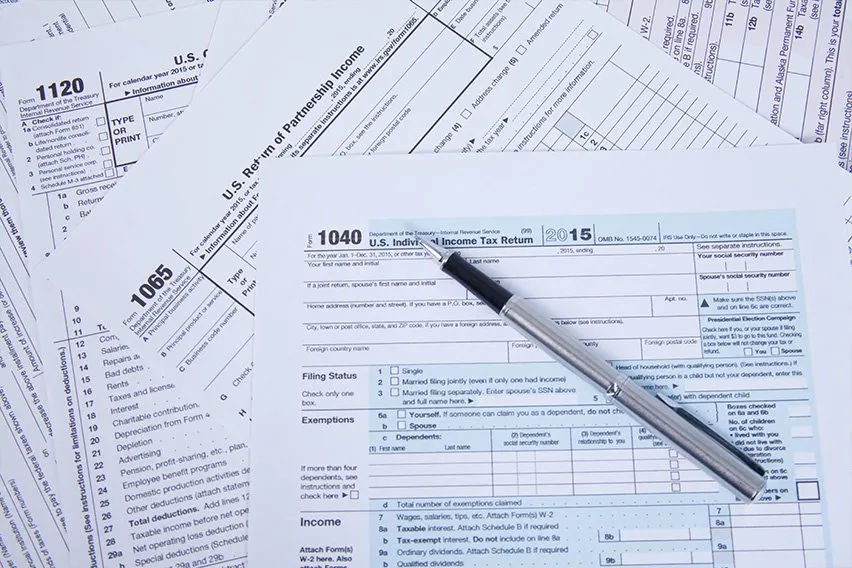 What Forms Do I Need to File Taxes?
What Forms Do I Need to File Taxes?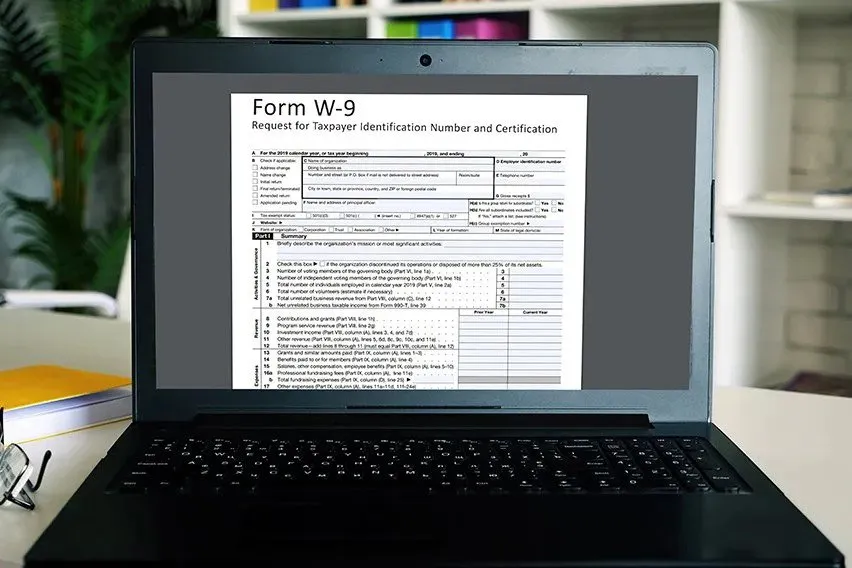 How to Fill Out a W9: Step-by-Step Guide for 2025
How to Fill Out a W9: Step-by-Step Guide for 2025 What Is an Excise Tax?
What Is an Excise Tax?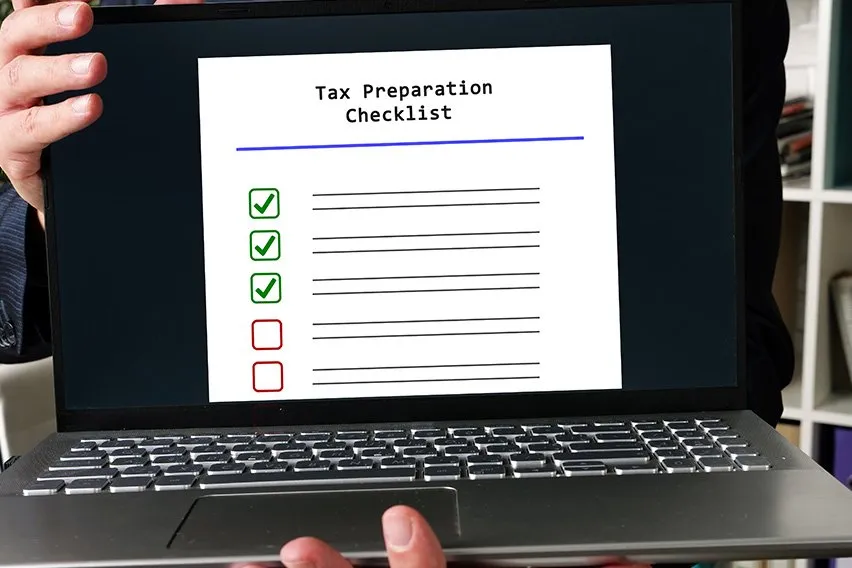 Tax Preparation Checklist: Information You Need Before Filing Taxes
Tax Preparation Checklist: Information You Need Before Filing Taxes What Is FICA Tax? Understanding Payroll Tax Requirements
What Is FICA Tax? Understanding Payroll Tax Requirements